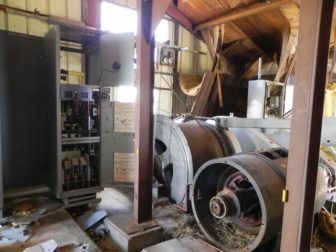Although uranium mining in Colorado largely went dormant decades ago, about 20 actively permitted mines—mostly in western Colorado on federal lands—still have not been cleaned up and reclaimed. But last month, the Colorado Court of Appeals issued a ruling that will finally lead to the cleanup of these inactive mines.

Earthworks, INFORM, and the Sheep Mountain Alliance, represented by the Western Mining Action Project, last year appealed the Colorado Mined Land Reclamation Board’s decision to issue a renewal of a temporary cessation permit for the Van 4 Mine, near Bedrock, Colorado. State law allows a maximum of 10 years of “temporary cessation”, or the ability to maintain mine permits without actually mining, and without beginning any reclamation activities. This is accomplished by renewing five-year temporary cessation permits twice in a row. But only twice.
The Van 4 mine – and many others just like it—have been inactive for nearly four decades, yet the Mined Land Reclamation Board has continually re-issued temporary cessation permits for them, in clear violation of the Colorado Mined Land Reclamation Act. In fact, the board never adequately enforced the reclamation requirements of the law since it was passed in 1977. Now, the court has made it clear that 10 years means 10 years, and beyond this, reclamation must commence.
The Van 4 decision has implications far beyond than this one mine. We will begin to see a surge in reclamation activities at dormant uranium mines statewide but particularly in the Dolores River watershed of Southwestern Colorado. And that is a victory for wildlife and clean water, as well as the people who use and value these public lands and expect them to be cleaned up once mining is done.
This decision comes just three months after another major victory in Colorado—the passage of HB 1113—legislation that, among other things, precludes any new mine from being built if it would rely on permanent—or perpetual—water treatment after the mine is reclaimed.
Colorado is now at the forefront of strong mining policy nationwide, but we still have a ways to go to make sure the rest of the state’s historically abandoned mines get cleaned up too, and there are approximately 23,000 of those. Holding polluting mines accountable under the Clean Water Act by stepping up enforcement will also go a long way toward protecting Colorado’s rivers and streams.
Your Support Makes Our Work Possible
Earthworks helps families on the front lines of mining, drilling, and fracking. We use sound science to expose health, environmental, economic, social, and cultural impacts of mining and energy extraction. To support our efforts, please consider a tax-deductible donation today that will go toward our work reforming government policies, improving corporate practices, influencing investment decisions, and encouraging responsible materials sourcing and consumption.


